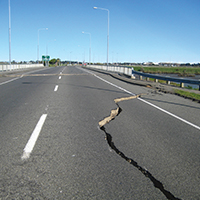
Better horses
Winston Peters’ tax credit for pretty horses fights the wrong battle when it comes to improving New Zealand’s bloodstock. New Zealand has no obvious problem with ugly horses. Read more

Eric Crampton is Chief Economist with the New Zealand Initiative.
He applies an economist’s lens to a broad range of policy areas, from devolution and housing policy to student loans and environmental policy. He served on Minister Twyford’s Urban Land Markets Research Group and on Minister Bishop’s Housing Economic Advisory Group.
Most recently, he has been looking at devolution to First Nations in Canada.
He is a regular columnist with Stuff and with Newsroom; his economic and policy commentary appears across most media outlets. He can also be found on Twitter at @ericcrampton.
Phone: +64 4 499 0790

Winston Peters’ tax credit for pretty horses fights the wrong battle when it comes to improving New Zealand’s bloodstock. New Zealand has no obvious problem with ugly horses. Read more

New Zealand’s climate change policy could stand to be just a little more vanilla. When Cyclone Enawo hit Africa’s east coast in 2017, it wiped out about 16% of the world’s vanilla production. Read more

On his regular Radio New Zealand Nights chat, Eric Crampton is taking a look at our fresh water. Read more

Supporting a regulated market for cannabis hardly requires you to think cannabis is a good thing. It rather recognises that illegal markets are risky with their own harms, and that American states that have liberalised have generally seen good outcomes. Read more

It is hard to make good rules in a hurry. And the period after an earthquake – or any natural disaster – is the worst time for setting new building codes, new city plans, or new rules for urgent building demolition. Read more

The government’s planning changes to freshwater management. Earlier this month, the government released consultation documents outlining its intended approach to improving freshwater quality. Read more

The past fortnight’s shenanigans have raised calls for campaign finance reform. But campaign finance regulation is like squeezing a balloon. Read more

The Tax Working Group’s high-level advice is absolutely correct: The government should simplify the alcohol excise structure, put tobacco excise increases on hold, and not proceed with any sugar taxes until it figures out what it is trying to achieve. This sound advice relies on a rather reasonable summary of the issues produced by the Tax Working Group’s secretariat. Read more

Following Canada's recent decision to legalise cannabis for recreational use, Dr. Eric Crampton discusses how this might work in New Zealand. Listen to his interview on Newstalk ZB below:
Read more

Normal politics too quickly leads to despair about democracy and humanity. If you are tired of reality-TV political shenanigans, turn off the Twitter feed and turn an eye to the government’s promising work on freshwater management. Read more

Read The New Zealand Initiative's submission to Parliament's Transport and Infrastructure Committee on the Building Amendment Bill.
Read more

Well prior to the Christchurch earthquakes, the Earthquake Commission warned the Government it would not be up to the task of assessing damage to tens of thousands of homes following a major disaster. It lived up to its own expectations following the Christchurch earthquakes. Read more

Read The New Zealand Initiative's submission to the Environment Committee on the Crown Minerals (Petroleum) Amendment Bill. Read more

Erwin Schrödinger never actually put cats into boxes that might or might not kill them, depending on a radioactive isotope’s random decay. It was only a thought experiment designed to show that the unseen cat could simultaneously be considered both dead and alive, until the box was opened. Read more

After Fraser High School principal Virginia Crawford read her students the riot act about truancy, linking it to a host of social ills from criminal activity to being a victim of crime, and from illiteracy to unemployment, her offended students staged a walkout. It is easy to see why the students were offended. Read more